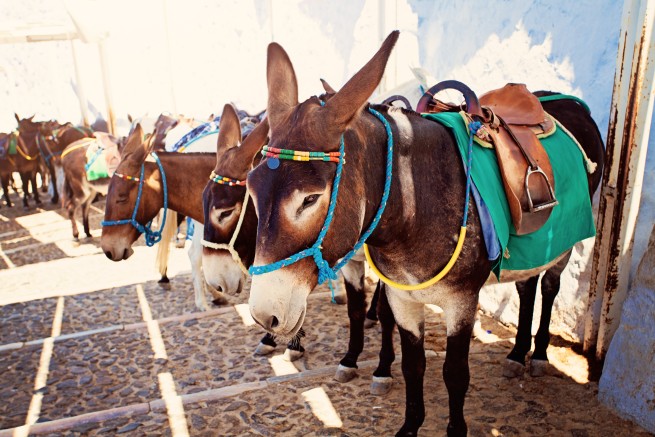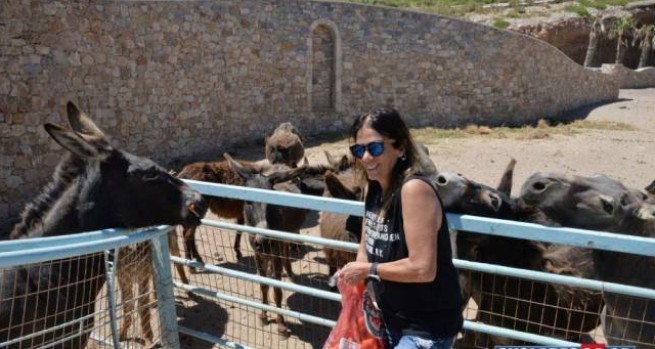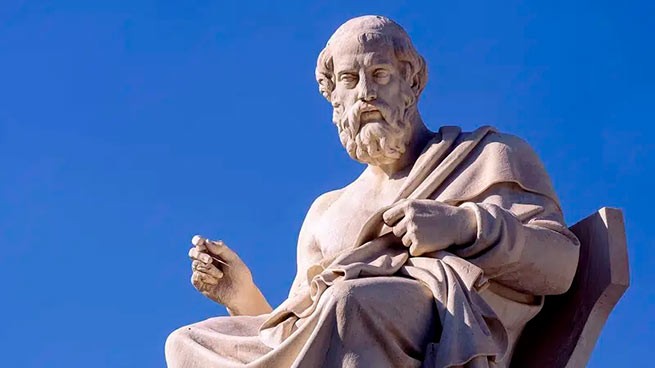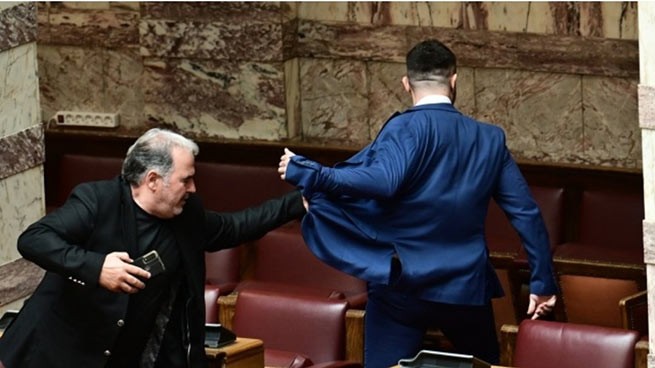An international scientific team has announced the creation of the world’s first successful donkey embryo using in vitro fertilization (IVF). Advances in medical technology could save dozens of endangered donkey species.
Most of us imagine donkeys as livestock and beasts of burden, tethered for hours, or overburdened and climbing the steps of some island under the scorching sun. Would you ever believe that these are playful, affectionate, gentle, sociable and curious animals that would make a person’s best companion? And that is not all.
Creating a viable donkey embryo was a difficult task, but Australian, Argentine and Spanish researchers who published their work in the journal Theriogenology managed to achieve this using the intracytoplasmic injection process or the microinsemination technique (ICSI). This first embryo of an endangered European donkey species has been frozen in liquid nitrogen until a suitable female is found in 2023 to implant it.
Lead researcher Dr Andres Gambini of the University of Queensland in Australia said “the technology paves the way for other endangered species to eventually create a ‘frozen zoo’ or large animal embryo gene bank to help increase the number of endangered species in the future.” According to him, “when trying to increase the population of a species, there are many problems with crossing. But with in vitro fertilization, we can combine sperm and eggs from donkeys with different genetic backgrounds and thus create viable embryos.”
The researchers noted that donkeys are more threatened than people think: seven of the 28 European donkey species are endangered, with another 20 considered endangered. The reasons for the extinction of animals are varied, for example, illegal slaughtering, reduction of land suitable for grazing, less and less use of donkeys in rural areas by farmers, etc.
Recall that in Greece these lovely workers are honored. For example, the country has donkey protection organizationwhich are mercilessly exploited, for example, in Santorini.
As Athens News previously wrote, Vice President of the Hellenic Association for the Protection of Animals, Tanasis Cheliotis, talks about horses and donkeys that work non-stop throughout Greece in the summer. They pull wagons, go up and down stairs with loads and riders on their backs, and are used to work in the forest. At the same time, however, the legislation protecting them is incomplete, and the picture we have of their numbers and working conditions is virtually non-existent. The reason is “working” (as they are called) horses and donkeys, which in our country can be seen in many tourist places – in the Cyclades and Argosaronicos Islands (Santorini, Hydra, Aegina, etc.), as well as in the countryside, performing work for their owners.
Donkeys of Lindos under the gun of the tax
But what do we know about the conditions in which they live and work? A few days ago, a picture of a horse pulling a wagon in Manhattan caused sadness and disgust, which, exhausted from the heat, collapsed in the middle of the street. In the rest of the world, the image of hard work in extreme heat can be seen in Santorini with its famous donkeys, which often draw complaints from animal lovers.
In August 2021, a circular entitled “Protection of working horses and animals transported during summer holidays in extreme weather conditions” was issued, which stated that animals should not work from 13.00 to 17.00 at temperatures of 35 ° C and above in the shade. “But who controls it?” asks Thanasis Cheliotis, vice-president of the Hellenic Society for the Protection of Horses (Ε.Σ.Π.Ι), and explains: “First of all, this is a circular, not a law. Despite the circular, donkeys continue to work in Santorini in extreme heat or stay tied without a shadow.
In reality, there is no Greek legislation on working horses, as it is based on the outdated Law 1197 of 1981, which is mostly vague about the basic needs of animals – food, water, shade. And the problem is not only in working on the islands, where animals are engaged in cargo transportation. Donkeys and mules are also heavily employed in northern Greece, where loggers cannot reach the forests with machinery and use them for work.”
Missing registration and database
According to Heliotis, the main obstacle to the control of working horses is the lack of a database. “Their registration is something that has not yet been done by the Ministry of Rural Development and Food,” says Vice President Ε.Σ.Π.Ι, adding: “We don’t know how many horses and donkeys are working, we just know that every summer… the ball is dropped on what happens in this sector. Records only exist locally. For example, in Santorini we know that there are 35 guides on the steps, which can have a maximum of 7 animals each. The racecourse also keeps a record of the number of horses “We, as an organization that has looked after 180 horses since 2006, know where they are. But we are talking about fragmentary records. Their registration falls under the European regulation, which should have been established in our country many years ago. Last April The Ministry of Agriculture and Forestry issued a circular according to which the registration of these animals should begin from October next year so that a database can be created – a register of working horses, where each animal o will have its own certified sanitary book. So far, no one obliges a private person to have a medical book for his horse. This means that if such an animal is hit, for example, on the road, no one is responsible.”

At the same time, Heliotis emphasizes that when the time comes to create a register, the responsibility for stray horses will lie with the regions, and as for private individuals, they will have to register them in their region. “Consider that undeclared animals mean zero tax burden,” Heliotis emphasizes and explains, “In the sales market, animals are currently sold for cash, and this black money moves in such a way that it is impossible to find an end. Therefore, it is necessary to ensure mobilization and control so that the plan registry has been implemented and has not failed.”
Accusations of overwork and difficult rescue
The vice president of Ε.Σ.Π.Ι told us that most complaints about poor working and living conditions for animals come in during the summer months. Many complaints mention that donkeys and horses carry too much weight, or that they work with open wounds that have not been cared for.
“The point is not that incidents do not occur in winter, it’s just that in the winter months they are not so noticeable, as they are only before our eyes, and in summer tourists see it,” Cheliotis notes and continues, “Unfortunately, now we are also registering a large number of homeless animals For economic reasons, some people leave them to graze outside and they run away because they are trying to find more food In many cases we find them on the streets because they have become disoriented One of the areas where we usually see abandoned horses, is located in Aspropyrgos. We also see abandoned former racehorses, which are now considered … unusable. “
“In the countryside there are whole herds of stray donkeyswhose owners received subsidies for them, and then immediately abandoned them.” However, according to Mr. Cheliotis, volunteer organizations cannot solve the problem in full due to insufficient staff and limited financial resources.
“We must definitely deal with emergencies. Animals with large wounds or grazing animals, that is, with tied legs, come first,” he notes and continues, “In other cases, we try to cooperate with local police stations, while a positive result is determined by whether the site manager is cooperative or not We try to get the horses to recover and then put them up for adoption Until they are adopted we cannot bring new ones into our barn We currently house 20 animals and unfortunately they’ve been full for a long time, and there’s no such structure in the state.
In general, this problem is not purely Greek, it exists in many countries. What we need in Greece is special legislation for working horses, donkeys and mules, since they are a completely different category than productive animals (sheep, cows, etc.). We are talking about the animals that helped us rebuild the country after the war, they have helped us so much for decades that we simply have to take care of them now.
However, there are still people in the world with a “human face”
Most of us imagine donkeys as livestock and beasts of burden, tethered for hours, or overburdened and climbing the steps of some island under the scorching sun. Would you ever believe that these are playful, affectionate, gentle, sociable and curious animals that would make a person’s best companion? And that is not all.

At a time when we read daily in the print and electronic media about the mistreatment of donkeys in Santorini (which has even been advocated by animal welfare associations), seventeen donkeys, having raised countless tons of building materials in their lives, dug up hectares of vegetable gardens and transported people on their on their backs with whips and beatings, are now enjoying the care and hospitality at the home of Vasiliki Petridou, writes in.gr.
In an amazing place with a beautiful view of the sea, in the Kumbara region of Ios, they move freely without a leash or saddle, patiently waiting for the woman who freed them from everyday suffering, bring them their much-loved carrot, talk to them, calling everyone by name and gently caress.
The decision to take care of them personally, even despite the daily activities and duties in the affairs that she does on the island, the businessman made herself. Vasiliki Petridou prudently equipped a space in which the animals would feel good. In addition, she is engaged in the rehabilitation and treatment of donkeys that need it, because they were delivered to her “half-dead” from merciless exploitation.
The life of the four-legged, given “in good hands”, is characterized by the expression “from the stick to the carrot.” Since in a past life they experienced a difficult and painful situation, and now, thanks to the sensitivity and kindness of Vasilika Petridou, their life has changed dramatically for the better.
At a time when we read daily in the print and electronic media about the mistreatment of donkeys in Santorini (which has even been advocated by animal welfare associations), seventeen donkeys, having raised countless tons of building materials in their lives, dug up hectares of vegetable gardens and transported people on their on their backs with whips and beatings, are now enjoying the care and hospitality at the home of Vasiliki Petridou, writes in.gr.
In an amazing place with a beautiful view of the sea, in the Kumbara region of Ios, they move freely without a leash or saddle, patiently waiting for the woman who freed them from everyday suffering, bring them their much-loved carrot, talk to them, calling everyone by name and gently caress.
The decision to take care of them personally, even despite the daily activities and duties in the affairs that she does on the island, the businessman made herself. Vasiliki Petridou prudently equipped a space in which the animals would feel good. In addition, she is engaged in the rehabilitation and treatment of donkeys that need it, because they were delivered to her “half-dead” from merciless exploitation.
The life of the four-legged, given “in good hands”, is characterized by the expression “from the stick to the carrot.” Since in a past life they experienced a difficult and painful situation, and now, thanks to the sensitivity and kindness of Vasilika Petridou, their life has changed dramatically for the better.






More Stories
Orange sky…
African dust: suffocating atmosphere in Attica
Large fire in the area of the Souda naval base on Crete